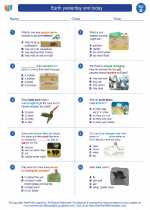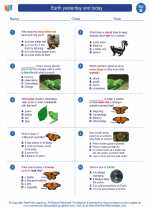Cosmic Phenomena
Cosmic phenomena refers to the various events and occurrences that take place in the universe. These phenomena can range from the behavior of celestial bodies such as stars, planets, and galaxies to the interaction of different forms of energy and matter in space.
Types of Cosmic Phenomena
There are several types of cosmic phenomena, including:
- Stellar phenomena: These include events such as supernovae, which are the explosive deaths of massive stars, and the formation of black holes.
- Planetary phenomena: This category encompasses events like planetary formation, geological processes on planets and moons, and atmospheric phenomena.
- Galactic phenomena: These are large-scale events and processes that occur within galaxies, such as the collision of galaxies or the formation of galactic structures.
- Cosmological phenomena: These phenomena pertain to the large-scale structure and evolution of the universe, including concepts like dark matter, dark energy, and the Big Bang theory.
- Astronomical events: This includes phenomena such as eclipses, meteor showers, and cometary activity that can be observed from Earth.
Studying Cosmic Phenomena
To understand and study cosmic phenomena, scientists use a variety of tools and techniques, including:
- Telescopes: These instruments allow scientists to observe distant celestial objects and events, providing valuable data for understanding cosmic phenomena.
- Space probes and satellites: These tools can be used to study planets, moons, and other celestial bodies up close, as well as to gather data on cosmic radiation and other phenomena from space.
- Particle accelerators: By recreating cosmic conditions in controlled environments, scientists can study the behavior of particles and energies that are present in cosmic phenomena.
- Computer simulations: Using advanced computer models, scientists can simulate cosmic phenomena and test different hypotheses about their origins and behavior.
Study Guide
If you're interested in learning more about cosmic phenomena, here are some key concepts to explore:
- Research the life cycle of stars, including the processes of nuclear fusion, supernova explosions, and the formation of stellar remnants like neutron stars and black holes.
- Investigate the geological features and atmospheric dynamics of planets and moons within our solar system, such as the volcanoes on Io, the icy geysers of Enceladus, and the storms on Jupiter.
- Explore the history of the universe, from the Big Bang to the formation of galaxies and the evolution of cosmic structures over billions of years.
- Learn about ongoing astronomical events that can be observed from Earth, such as the phases of the Moon, the orbits of comets, and the movements of planets in the night sky.
By delving into these topics, you can gain a deeper understanding of the incredible and diverse phenomena that shape our universe.
.◂Science Worksheets and Study Guides Second Grade. Earth yesterday and today
Study Guide Earth yesterday and today
Earth yesterday and today  Worksheet/Answer key
Worksheet/Answer key Earth yesterday and today
Earth yesterday and today  Worksheet/Answer key
Worksheet/Answer key Earth yesterday and today
Earth yesterday and today  Worksheet/Answer key
Worksheet/Answer key Earth yesterday and today
Earth yesterday and today  Vocabulary/Answer key
Vocabulary/Answer key Earth yesterday and today
Earth yesterday and today 

 Worksheet/Answer key
Worksheet/Answer key
 Worksheet/Answer key
Worksheet/Answer key
 Worksheet/Answer key
Worksheet/Answer key
 Vocabulary/Answer key
Vocabulary/Answer key

The resources above cover the following skills:
LIFE SCIENCE
Ecosystems: Interactions, Energy, and Dynamics
Plan and carry out an investigation, using one variable at a time (e.g., water, light, soil, air), to determine the growth needs of plants.